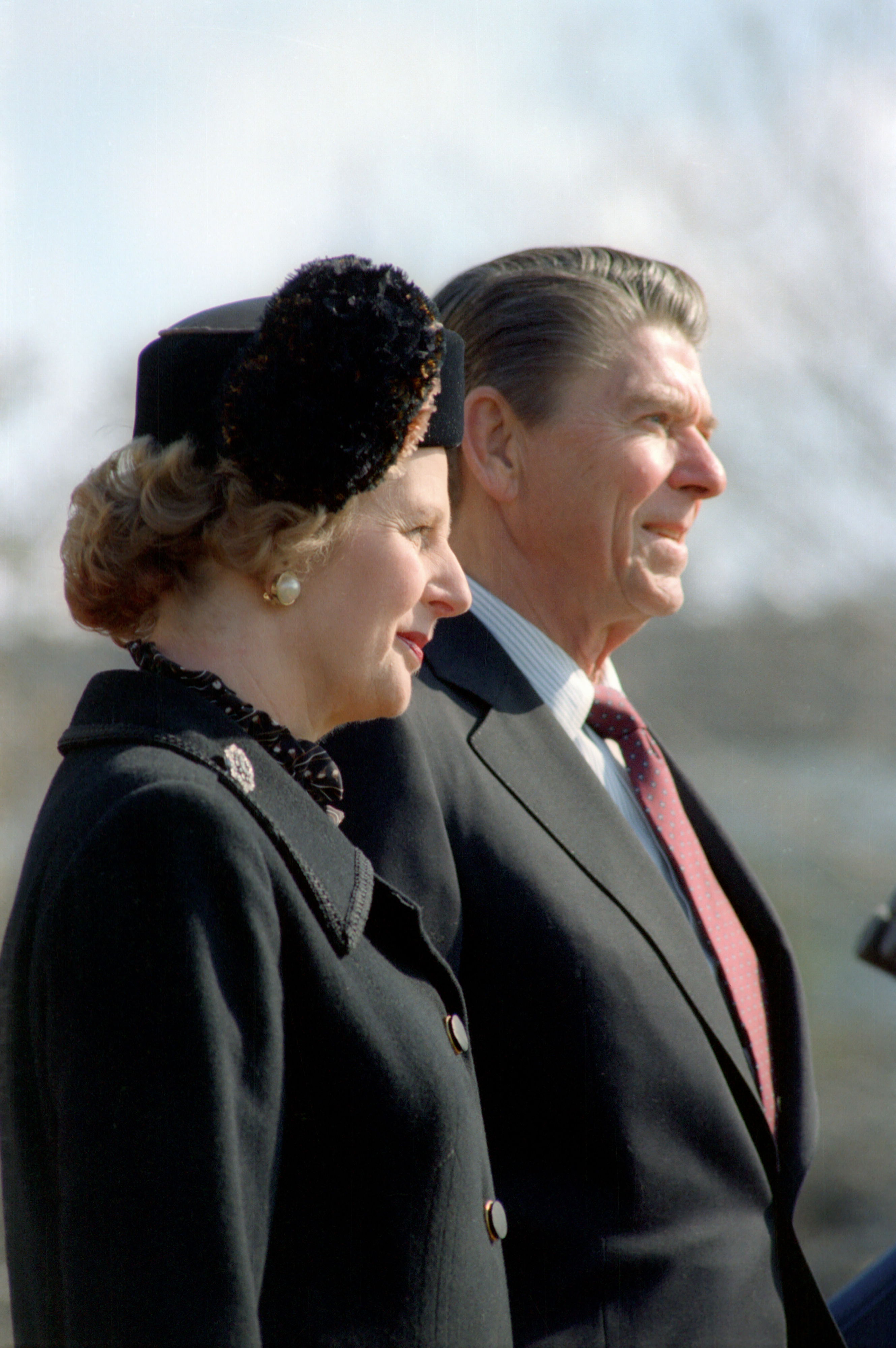Margaret Thatcher and Ronald Reagan.
Courtesy of Ronald Reagan Library.
On April 8th 2013, Baroness Margaret Thatcher, the first woman Prime Minister of the UK and the longest serving prime minister for around 150 years, died from a stroke at the Ritz Hotel in London.
To say that Margaret Thatcher and her legacy were divisive is an understatement. Even as politicians trip over themselves to offer condolences and insist that she was a remarkable woman who saved Britain from obscurity, long-running website http://www.isthatcherdeadyet.co.uk/ asks how people are celebrating, and a Facebook campaign has been launched to get “Ding Dong the Witch is Dead” to Number 1.
I was born in the mid-80s, when Thatcher was still in power but I was (as you might expect for a baby) fairly oblivious to it. Growing up though, her influence was made clear to me, not least because terrorists once tried to assassinate her by blowing up a hotel in my home town. Her critics accused her of destroying communities, particularly in the north of the UK, but her admirers praise her for saving Britain. That such opposing opinions can be held in the same country at the same time seems extraordinary to me; perhaps we are still too close to the events of her tenure to judge for certain what their effect truly was. It may be that both opinions are true, for it is true that some people suffered greatly thanks to her reforms whilst others profited.
A line I have heard frequently in the news is that whether you admire or despise her, we can all agree on her influence, particularly to women. I remember the Spice Girls citing her as an inspiration, branding her the “original Spice Girl.” I can just imagine the look on her face when she heard that; I’m not certain she would have been flattered. She went to great efforts to distance herself from the feminist movement, calling it “poison,” a dislike that was mirrored by many in the feminist movement of the time and today. She was criticised for breaking through the glass ceiling but then failing to bring up any women with her, or even implement any positive policies for women; many have called her an anti-feminist. And yet others, including Meryl Streep (who portrayed Thatcher to great acclaim in The Iron Lady) have called her a feminist icon.
Can a woman who was so divisive be inspirational? It seems so; current UK Prime Minister David Cameron has cited her as a positive inspiration, as has Labour politician Oona King who said Thatcher “guaranteed my lifelong passion for politics‚Äìthe only means of getting rid of the occupant of No 10.” One of Thatcher‚Äôs many famed quotes was “The lady is not for turning,” a line remarkably similar to a quote attributed to Queen Elizabeth I: “though the sex to which I belong is considered weak you will nevertheless find me a rock that bends to no wind.” Both these women proved that a woman could wield power and high office, the same as any man. Is that all we look for in our female role models? Strength, no matter what the cost?
I can safely say that I am not a fan of Thatcher’s policies, but I don‚Äôt rejoice in her death. The changes she made to the country are still lingering on. Recent events in the UK have a great deal in common with Thatcher‚Äôs time in power: unemployment, great social change, civil unrest‚Äìeven the Falkland Islands are hitting the news again.
For good or ill, Thatcher was a powerful and influential woman whose effect on the UK is long-reaching and complex. Should we celebrate, even respect her? Love or loathe her, one of her many legacies has been to raise expectations of what women in power can do; for this at least my gut tells me–reluctantly–that she is worthy of some respect.
-Sarah Jackson
Junior Girl
Girl Museum Inc.

